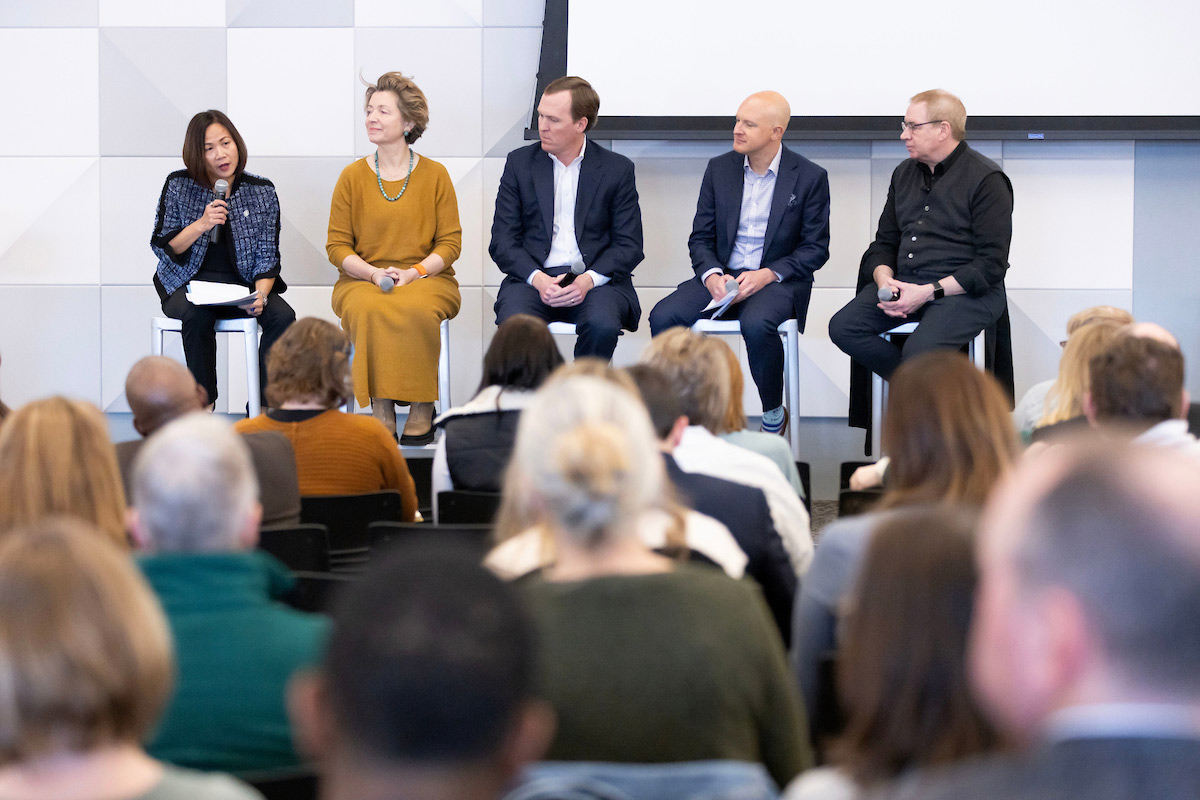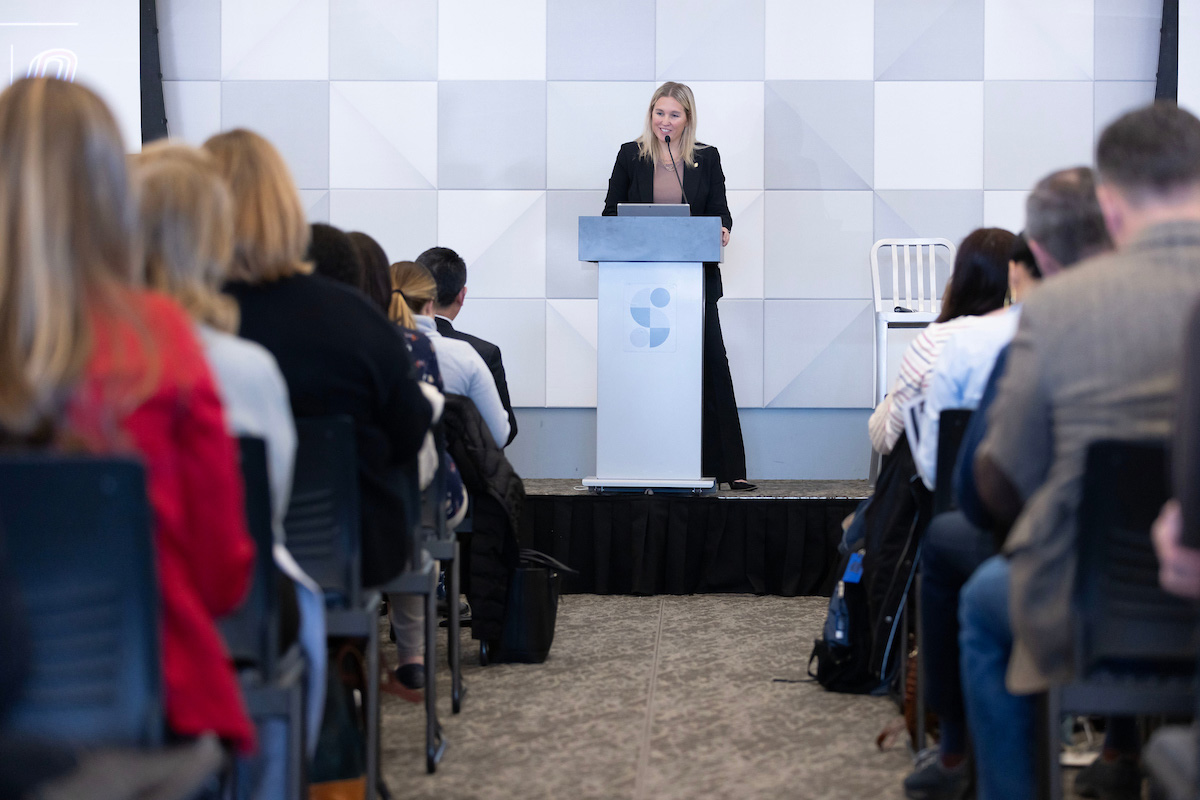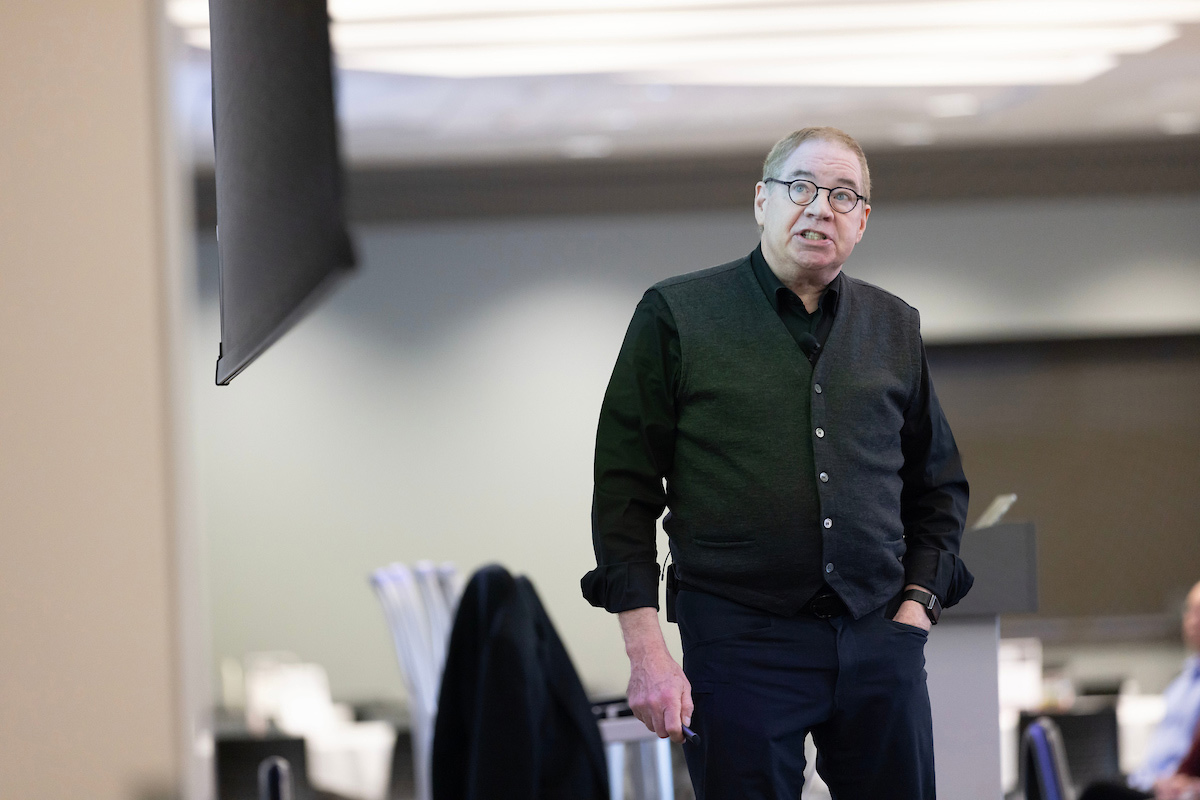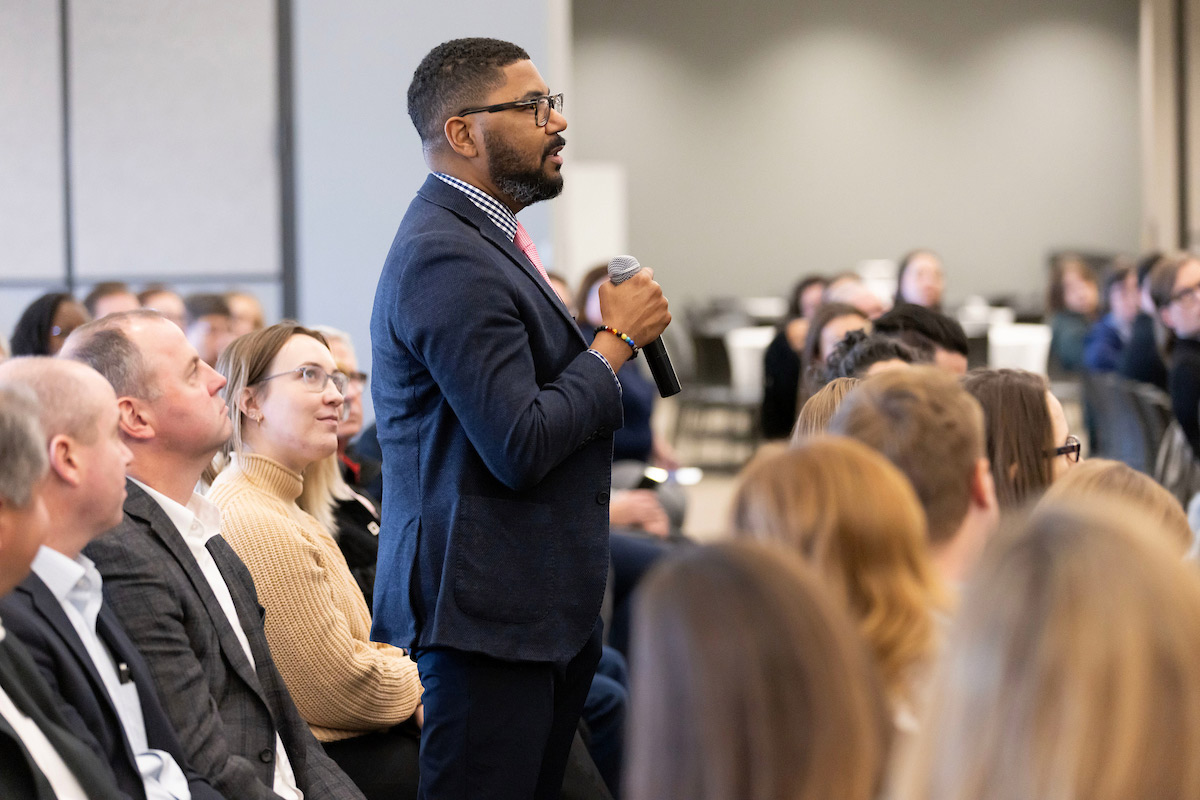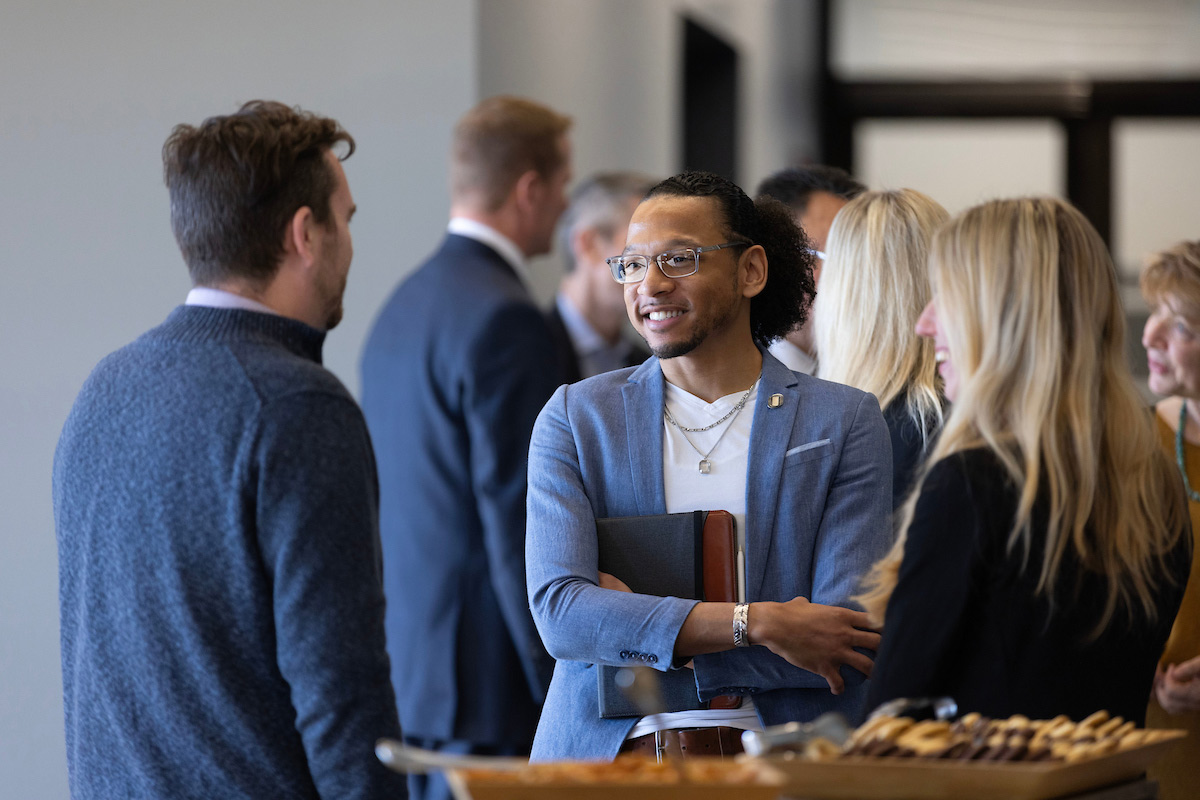‘Future of Work’ Panel Discusses Forces of Change; Innovation in Omaha
The “Future of Work Symposium Series” brings together leaders from the public, private, education and nonprofit sectors to shed light on big challenges and share thought-provoking insights.
- published: 2023/12/14
Community members, students, staff, and faculty gathered at the Scott Conference Center on Monday to attend the University of Nebraska at Omaha’s (UNO) third event in its Future of Work Symposium Series. The event — titled "Forces of Change" — featured national experts as well as prominent local professionals who shared their thoughts on what it takes to drive innovation in the workplace.
Dr. Jaci Lindburg, Associate Vice Chancellor for Innovative and Learning-Centric Initiatives and Dr. Phil He, Senior Vice Chancellor for Academic Affairs, welcomed renowned innovation scientist, speaker, professor, and author of “Ten Types of Innovation: The Discipline of Building Breakthroughs,” Larry Keeley as the keynote speaker to kick off the event.
Revolutionizing Innovation for the Modern Business
Keeley highlighted the significance of using a multifaceted approach to fostering innovation, and the importance of integrating business, engineering, design, and social sciences in the workplace.
After decades of experience working with business, engineering, and design institutions across the globe, Keeley has developed a core principle that drives innovation, and that is collaboration. He challenged the common belief that technology alone drives innovation, but instead, takes the thoughtful consideration of various aspects.
"If you want innovation to occur, you have to balance those things. You have to change the business, you have to change the technology, and you have to change the experience,” said Keeley, "When you learn to get those things to happen in respectful collaboration with one another, what you get is something remarkable. You get a smaller number of bigger ideas."
Once an idea is established, Keeley explained that it must pass three essential tests to create impactful innovation; it must have cultural relevance, be technologically advanced, and have an equitable business model. These tests are the building blocks of using innovation to create long-lasting impacts and cultural significance.
Panelists Discuss Innovation in Omaha
Following Larry Keeley’s keynote presentation, a panel comprised of researchers and leaders from area businesses and organizations took to the stage to engage in a Q&A session with the audience. The panel was moderated by UNO Chancellor Joanne Li, Ph.D., CFA, and included:
-
Larry Keeley: Author, Professor & Co-Founder of Doblin
-
Clark Lauritzen: President of First National Bank of Omaha
-
Dr. Ben Wigert: Director of Research and Strategy, Workplace Management at Gallup
-
Silva Raker: CEO of Kiewit Luminarium
The panelists highlighted the importance of innovation within Omaha, and discussed a variety of ways that innovation can lead to impactful change within a community, and what that could mean for UNO.
Wigert emphasized the idea that continual improvement should always be the mindset behind innovation, and an effective way to manage big ideas while still supporting creativity is through a strategy-driven approach.
“I think it is important that the culture of innovation, where people have the mindset that we should always continually improve, should be supported. I want to think about my role and how I can support it and not slow it down,” Wigert said. “At the same time, and in parallel, we have to have the right planning and process to make it really effective.”
Lauritzen stressed the need to build sustainable businesses rather than just products and discussed leveraging Omaha's uniqueness for innovation. "Think of Omaha as an advantage. Constraints around us can lead to breaking out of traditional thinking and fostering creativity."
Raker discussed the innovative membership model that encourages inclusivity and engagement that her team has put into practice. The model, which gives customers the opportunity to pick a price point based on their income, allows community members of all demographics to visit. By doing this, they've created a diverse and innovative way to engage with all community members.
The panel concluded by emphasizing continued engagement, collaboration, and innovative thinking as critical factors for translating dialogue into actionable initiatives within the Omaha community.
“I think this event has been a really good way for us to bring people together and truly think big about not only all the ways in which the world is changing and the challenges that presents, but also how we can work together in really important ways to co-create solutions that will greatly benefit Omaha and our state,” Lindburg noted.
The Future of Work Symposium Series at UNO began in Fall 2022 as a series of ongoing conversations discussing critical topics influencing how, why, and where we work. Through conversations with leaders from the public, private, nonprofit, and education sectors, this series will continue to shed light on the big challenges facing the workplace and share thought provoking insights on the future of the workforce.
Access to the slides presented by keynote Larry Keeley can be found here. Information about upcoming events in the Future of Work Symposium series will be published on the UNO website as it becomes available, with the next event tentatively planned for April 2024.
